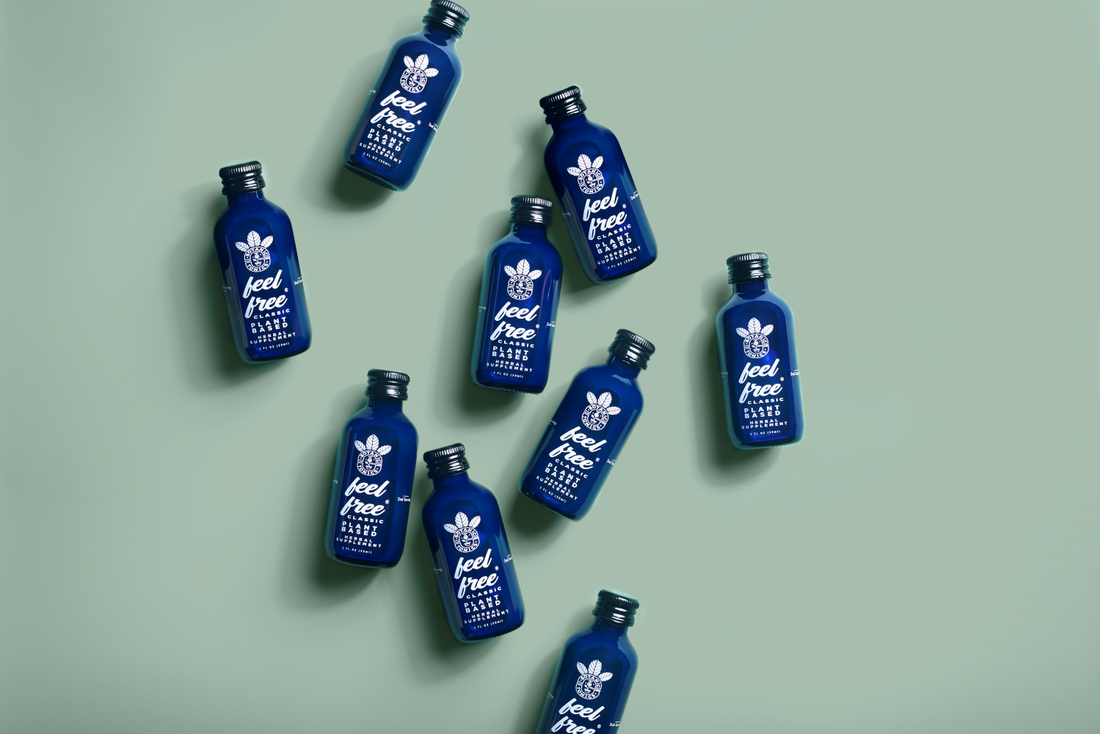It’s no secret that the words “sustainable” and “eco-friendly” have been thrown around more and more within the retail sphere in recent years. But what do these terms actually mean? They can sound intimidating if you haven’t looked into why our everyday lives are, frankly, unsustainable. I’m here to tell you that being more eco-friendly in your daily life is not that intimidating, and there are several small steps you can take right now to move toward a more sustainable way of living.

- Stop buying plastic water bottles. Seriously… stop it. That bottle most likely isn’t ending up in the recycling plant you hoped for. It’s better to stop using them altogether and opt for a reusable bottle. Just that change alone can save an average of about 150 plastic bottles a year. If 10 people made the switch, 1,500 plastic bottles would stay out of our landfills and oceans yearly. It’s probably the easiest sustainable switch you can make, and it will save you money as well. It’s a win-win.
- Reuse food jars. Think about how many food and health/beauty products are sold in glass jars. Throwing these away is totally wasteful! Glass jars can also be used as Tupperware, coin jars, jewelry boxes, Q-tip holders, toothbrush holders, flower vases, candle holders… the list goes on and on. For example, at feel free, we love to reuse our bottles as mini flower vases and give them out as gifts. The possibilities for reuse are endless. If we all shifted our thought process and realized that most items we purchase have a much longer life cycle, the need for single-use plastic would decrease significantly.
- Switch to soap bars. This tactic is actually one of my favorites, since I love walking through the natural soap bar section and sniffing each one until I (possibly an hour later) finally decide which is my favorite. Each time I finish another bar of soap, I feel a little excitement because I get to pick out a new scent and formula every month or so. Even more significantly, you can use a soap bar in place of most, if not all, beauty and household items: dish soap, hand soap, body wash, laundry soap, shampoo, conditioner, face wash, etc. This will jumpstart your sustainability routine and save you money. Soap bars don’t have nearly as much (if any) packaging, which makes them automatically cheaper. Again, another win-win!
- If you’re able, take up walking or biking for your shorter commutes instead of driving. Obviously, this depends on your environment and whether walking or biking is an option. Decide what’s best and safest for you. But if you can walk to your neighborhood market or coffee shop instead of driving your (exhaust-spewing) car that mile down the road, it makes a difference.
These are just a few ways to be a more eco-conscious, sustainable person. Many people don’t try sustainability because they can’t imagine never using plastic again, and it sounds too complicated to tackle. It’s much easier to ignore the issue and save it for a rainy day. However, the only way to make a change is to start, no matter how small. Every effort counts. If one person every day decided to make a small change, being a “sustainable” person wouldn’t sound so intimidating.
Enjoy a feel free CLASSIC tonic to relax after a long day at work, use it as an mood lift on the weekends, or have it when you want to feel focused.















